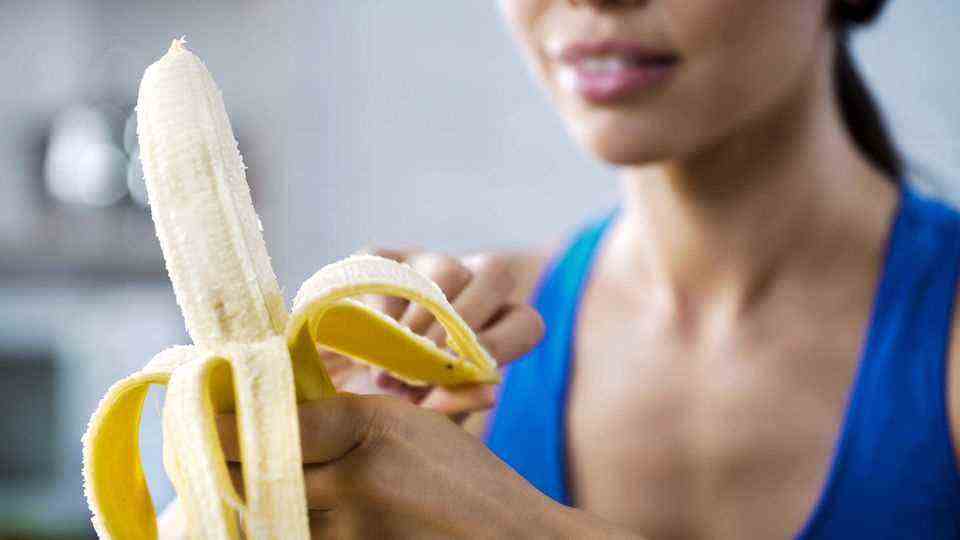Consumer advice center warns
Peeling a banana: why we should wash our hands afterwards
Bananas are often treated with toxins. They then sit on the shell.
© golubovy / Getty Images
Bananas are a popular and healthy snack. But after peeling you should wash your hands, advises the consumer advice center. The consumer advocates also have an important tip for parents.
Germans love bananas: around a million tons are eaten every year. In addition to apples, bananas are one of the most popular types of fruit. Because the crooked fruits do not grow in this country, they are mainly imported from Central and South America, where they thrive on large mono-plantations.
But this type of cultivation creates problems: In many places, chemicals are used to ward off pests and diseases. This not only harms the environment and the plantation workers – the chemical club then also sticks to the bananas.
“In studies, residues of these pesticides are repeatedly detected on and in the peel,” says nutrition expert Sabine Hülsmann in a message from Consumer advice center Bavaria. The all-clear for the pulp itself: In the area under the peel there would be only “few or no pesticides”.
After the harvest, bananas are treated again. They are sprayed with anti-mold agents called fungicides. The poisons are supposed to prevent the fruits from rot prematurely or mold on the long journey.
Toxins on banana peel – better to use organic
Fruits from conventional cultivation are particularly affected. “With conventional goods, it is advisable to wash your hands after peeling. Children should only be given the peeled fruit”, advises Sabine Hülsmann.
The consumer advice center recommends fair trade organic bananas. They are less polluted or not at all, they protect the local environment and make an important contribution to better working conditions.
Bananas are often frowned upon because of their high sugar content. The fruits are very healthy, they provide valuable vitamins and ingredients, especially vitamin B6 and potassium. Potassium is one of the most important electrolytes in the body and is responsible, among other things, for muscle work and heart function.
This article comes from our archive.


